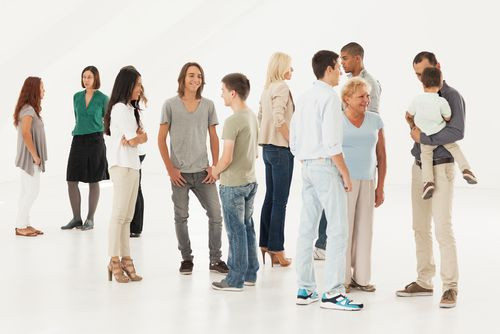Single And Proud On Valentine's Day: Futurist Predictions Say Single Is The New Black

What is it about Valentine’s Day that makes normally out and proud singles suddenly act as if they have a contagious disease? “I stay home on Valentine’s Day,” a friend told me last week. “I don’t want to be seen alone with all those couples around.” To all concerned: Quarantine is not necessary just because the card companies conspired with a bunch of chocolate manufacturers to make sure this holiday consistently occupies a place on the contemporary calendar. Just as being single is not an illness, it is also not necessarily the result of a failure of will or the consequence of a faulty moral compass. Anyone human surely understands that in a mortal world, no one lives forever, nothing lasts forever, and relationships don’t always work out — the overwhelming majority of us, then, will be spending some of our time on this planet single.
There’s no need to either pretend you adore being single or fake being thrilled that it’s Valentine’s Day. That said, today may offer you the perfect opportunity to understand exactly what you truly hope for your life and whether some of your dreams, especially those concerning romance, are dusty, dull, and ready to be discarded.
Let’s begin with the fact that there are a ton of single adults knocking around these days — by some counts, 99.6 million to be precise. More importantly, solo citizens are officially on the rise, according to Faith Popcorn, the self-described "futurist," whose market predictions have influenced Wall Street, Main Street, and most everyone in-between. (She predicted, for instance, the "cocooning" trend, where people would retreat into their homes and socialize less in the outside world, during the 1990s. Repeat after me: telecommuting, online shopping, social media.) “Singledom is creating the new aspiration,” Popcorn writes in one of her latest predictions, Single-arity. “Soon, traditional marriage won’t be considered the ideal or even the norm.” Even more, single is where the money is at, according to Popcorn, who notes that singles spend about $1.5 trillion annually. “In much the same way that gay culture inspires mainstream trends, singles are becoming the new leading edge. Smart marketers will look to attract singles in order to find a place into the general zeitgeist.”
Another perspective on singledom is provided by Bella DePaulo, Harvard trained social scientist and professor at University of California, Santa Barbara, who routinely debunks myths and stereotypes that surround and often overwhelm single people. She talks a lot about how singles are not just discriminated against in ways that should never be tolerated by anyone, but they are also pathologized. You may not agree with her personal stance of absolutely preferring a single life — she considers herself single-at-heart — but her writing works as a kind of antidote to fuzzy thinking about the issue. If sometimes she too quickly says not everyone wants to be half of a couple (let’s face it, most people do), she also pretty thoroughly explains that marriage simply does not confer all the health, financial, and social benefits it is supposed to and this sad fact is true for many people. In short, reading DePaulo may not change your mind about your romantic hopes, but it just may inject a little much-needed spine into your single self on this Valentine’s Day.
After all, time devoted to friends, family, work, and interests — though not an official partner — can be an inspired way to live. Is it really beyond imagination that being single for some, many, most, or even all the years of your life might be one way of leading a meaningful and authentic life on this planet?



























